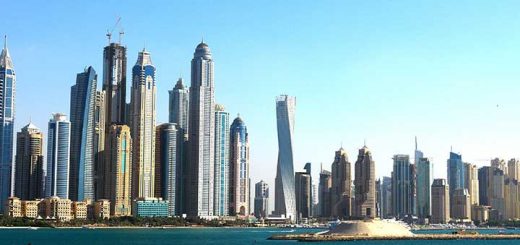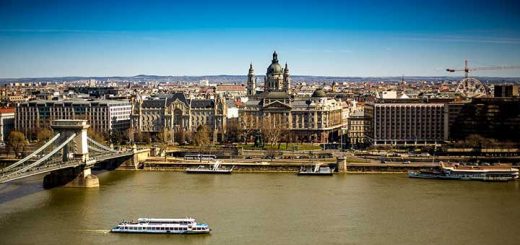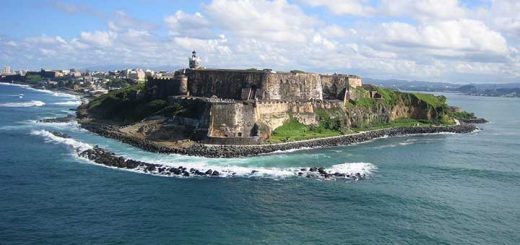Cyprus Travel Guide
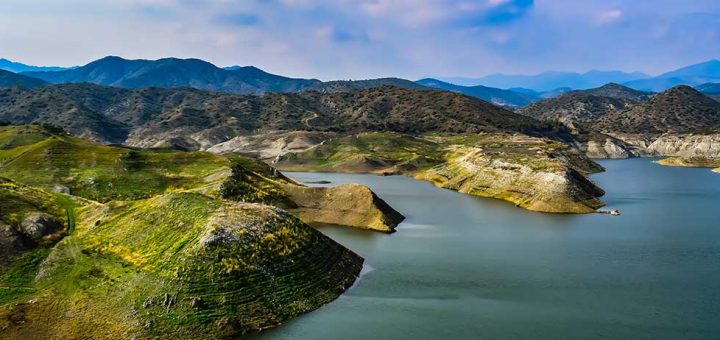
A meeting point of three continents and the turquoise waters of a few seas, the birthplace of Aphrodite herself, there is no way that Cyprus is not one of the most beautiful places under the sun, and in fact – it is! Engineered by nature and God to look and feel like a piece of heaven, Cyprus is attracted, seduced, tempted and made fall in love generations of travellers and tourists from around the world.
Cyprus is probably not the first name that comes to your mind when you are thinking of a magical summer holiday (thanks to the perfect marketing of some of the more popular islands and countries around the world). Cyprus is for sure a reflection of the dreamy holiday you would like to spend soaking up a lot of sun, enjoying amazing and always fresh food, relaxing in small and atmospheric resorts and celebrating life, with a lot of additional bonuses: diverse and distinctive landscapes and cityscapes, little cute towns for exploring and a jam-packed land of history and culture, so much history and culture that is hard to believe that the island is not sunk under the weight. When it comes to Cyprus, all we can imagine is dazzling water, unique beaches, endless summers and plates full of delicious and fresh meze enjoyed with bottles of chilled wine. What more could you ever ask for, right?
Cyprus is truly a home to a lot of contrasts, which is pretty surprising considering the size of the country. In fact, the island is unique by making all the contrasts working in a perfect balance, being a home to both Western and Eastern influence, Christian and Muslim, vibrantly modern towns and cities yet culturally and historically-heavy. Once you visit the island, you will find out that there is something for everyone to enjoy and keep as a precious memory. The country features some of the most beautiful landscapes and scenes you can ever imagine with rugged coastline and mountains dotted with vineyards, cosy little villages and monasteries. From atmospheric and unique little cottages to cutting-edge trendy resorts and hotels, Cyprus is truly deserving its name of a tourism hot spot.
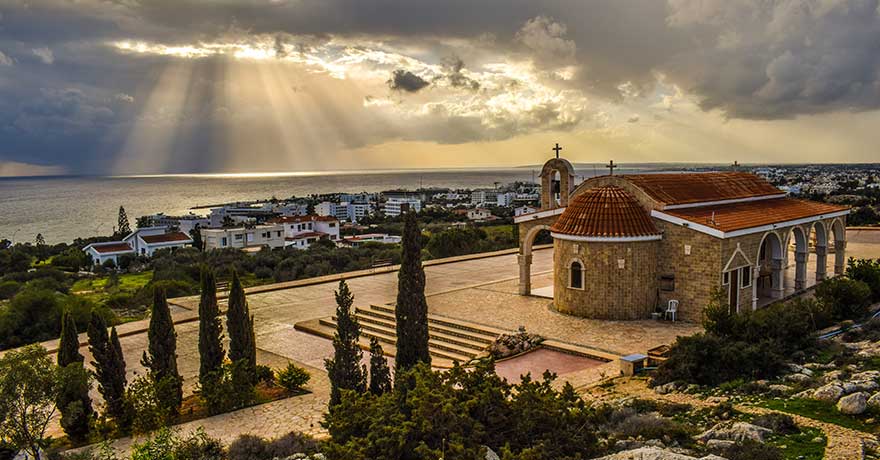
When it comes to traditional cuisine, there is no way you will be disappointed. No matter if you are enjoying a table filled with different plates in a small and atmospheric village tavern, or wining and dining in an extra luxurious restaurant – Cyprus simply caters for all tastes, needs and requirements, and it makes that in an unbeatable effortless way. Somewhere beyond the resorts and the buzzling cities you will be able to discover and enjoy traces of the exotic and Levantine, hiding in the ruins of the Lusignan and Venetian castles, the elegant Islamic minarets, the small mountain villages hiding icons from the very first days of Christianity. The best part is that no matter where you are and what you do when you are on Cyprus, you can expect a really warm welcome, a lot of hospitality and a friendly smile from locals.
In fact, Cyprus has a bit of a controversial and dramatic history, but there is no wonder why such a beautiful place used to be a subject of a lot of foreign invasions back in the past, from Mycenaean Greeks, Persians, Crusaders, Ottomans and even British Empire-builders. The more recent history continues with the invasions of Russian expats, and probably one of the most important events in the modern history of Cyprus – the internal division in the 50s and 60s. As a result, a part of Cyprus, which is called the Greek one, is nowadays independents and in a union with Greece, also a member of the European Union, while the other part is where the minority Turkish Cypriots is living and this part is nowadays de facto parted out and in a union with Turkey.
The bitterness that once caused the partition is probably living on today between the two different main minorities in Cyprus and the countries defending them, but the truth is that no matter where you go, whether it will be the south part of the Greeks or the north part of the Turks, you will be always welcomed with friendliness by the locals. However, keep in mind that it is not possible to experience Cyprus as a whole in one day only, since there is really plenty to do, experience and enjoy, but a bit longer stay will guarantee that you will be able to explore a unique mix of two very distinctive and special cultures – Greek and Turkish, Muslim and Christian.
When to go?
From April to October is the most typical tourism season on Cyprus, but to be honest, the climate on the island is mild and enjoyable all year round. From April to October, it is very easy to get a flight and book a hotel room in Cyprus because the island is a popular tourist spot in the summertime. In addition, all restaurants, attractions, etc. are open for visitors, while summertime is also jam-packed with a number of activities, festivals and what not to keep the tourists occupied. However, keep in mind that April-October is the time when the prices are higher in general, and Cyprus is overcrowded too. If you are not that much of a hardcore heat fan, August is indeed the month you would like to avoid.
If August is your only chance to visit Cyprus, make sure you are in a hotel with air-conditioning and we highly recommend you rent a car with an air conditioner too. September and October are the autumn months in Cyprus, but do not hope for a cool and even chill weather as in the majority of Europe’s inland because autumn on the island could be remarkably hot and very humid too. Probably the best time to visit Cyprus is spring, when the weather is warm and enjoyable, but not too hot, skies are blue, nature is luscious green, migrating birds fill the air, wildflowers are so many that they look like a thick carpet covering the ground.
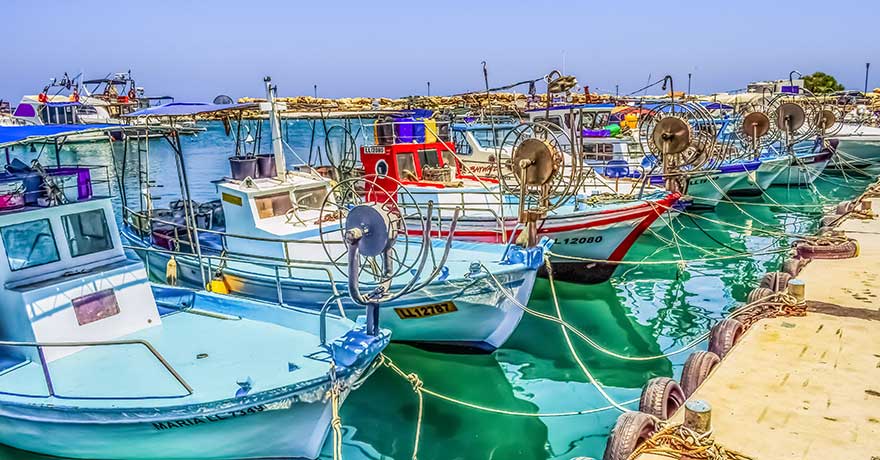
To make your vacation even more interesting and memorable, try to plan a trip to Cyprus during the Greek Easter, which is the biggest celebration in the Orthodox calendar and you will find the events and tradition related to the bank holiday very interesting, exciting and enjoyable. South Cyprus is not the only place offering plenty of festivals, as you will find some very interesting and exciting Muslim ones in the north too. Finally, if you are looking forward to experiencing Cyprus in the most authentic way and avoid all the crowds of tourists, wintertime is the perfect time to visit the island. However, keep in mind that many of the places, hotels and touristic attraction will be shut and the weather could be a bit cold sometimes.
Where to go?
One of the best features of Cyprus as a holiday destination is that it is a small island you can cover quite quickly. However, Cyprus is still offering plenty to do and a lot of places to visit and enjoy. Most of the tourists start exploring the island from the coastal strip in the south, where the main cities of Larnaka, Lemesos and Pafos are located. Each of these cities is a touristy place in the high season, but also a home to a beautiful historic old town, promenade and beautiful beaches. Head to the north, where is located the mountain range of the island – the Troodos Massif, dotted with little and unique villages, historical churches and enigmatic monasteries.
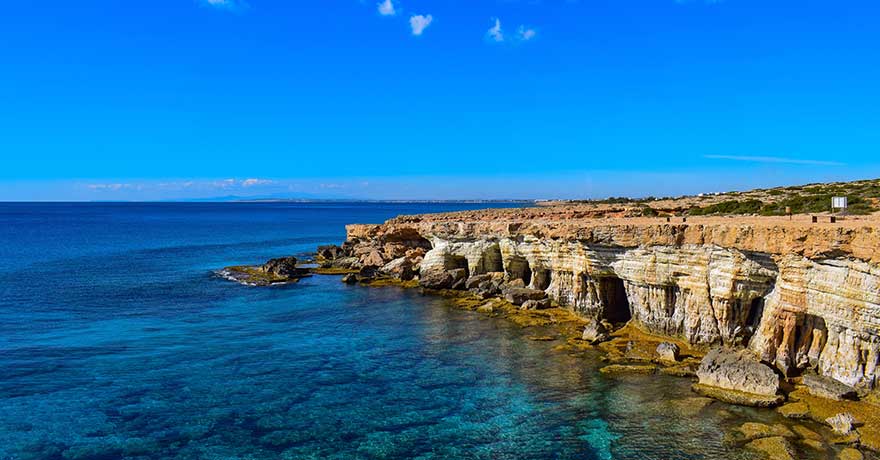
Here is where you can get a taste of the authentic culture and lifestyle of Cyprus. Another great part of the island offering some breath-taking natural beauty is the western part, dotted with vineyards, the great wilderness forest of Tilliria, the Akamas Peninsula. Lying within Turkish-occupied north Cyprus is the most impressive and beautiful mountains of the Kyrenia Range, the narrow coastal strip, where the most beautiful and popular town is Girne/Kyrenia. Head east and you will have the chance to explore the largely flat Mesaorian Plain, where the island’s divided capital Nicosia is located. Even further east is where the port city of Gazimagusa/Famagusta is located, as well as Karpaz Peninsula – a home to wild donkeys and unique villages.
Soaking up some really hot and beautiful sun is best done in the south – in Protaras and Agia Napa, just east from Larnaka. Some of the best beaches and some wonderful resorts on Cyprus are found on either side of Lemesos, Pafos and Coral Bay. Heading north, either side of Girne and north of Gazimagusa are offering a cool summer holiday experience too. However, if you want to avoid the big hotels and find an accommodation with more character and unique style, the north coast around Polis, the Akamas Peninsula or the hill villages of the Troodos Mountains is the right direction to go.
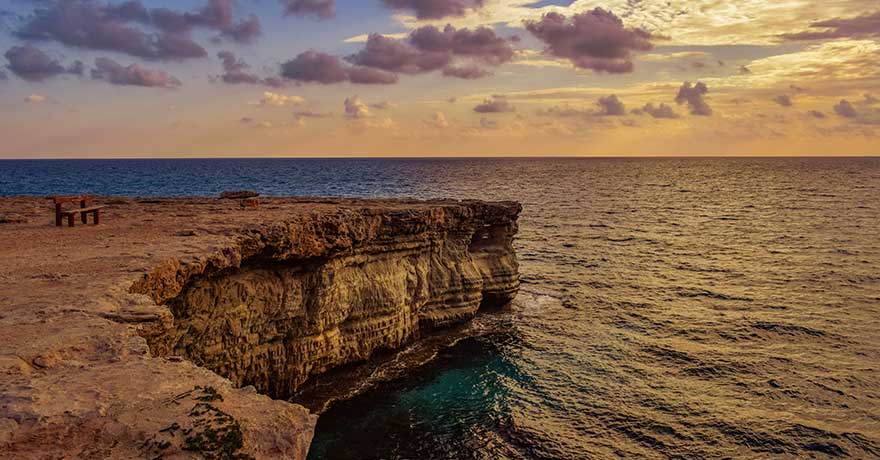
When it comes to a holiday on Cyprus, you can expect a lot of wonderful and super fresh food. For a taste of the modern cuisine of Cyprus, Lemesos is the right place to go, because the city is popular as the culinary capital of the island. Lefkosia, on the other hand, also offers a bunch of cool cafes and restaurants and it is also the best destination for shopping. The northern towns of Girne and Gazimagusa are most probably going to attract you with the laid-back and relaxed atmosphere. Lemesos is also a home to a wine museum and an annual wine festival, so if you are a wine lover, you know where to go. Cyprus is a country of a very rich and interesting history and culture.
There is not one single area that is a home to Roman ruins and other historical sights, as the whole island is offering a live history lesson to the visitors. Roman ruins, Byzantine church, Ottoman mosque or Crusader castle are easy to discover practically all around Cyprus, but the sights standing out the most include the prehistoric villages at Tenta and Choirokoitia, the ancient cities Kourion and Salamis, castles at Kolossi and Lemesos in the south and St Hilarion, Buffavento and Kantara in the north, Kykkos and Machairas monasteries, and, of course, the UNESCO World Heritage painted churches of the Troodos Mountains. Ottoman history could be observed through Buyuk Han in Lefkosa, Muslim mosques in Hala Sultan Tekke in Larnaka and Hazreti Omer Tekke east of Girne.
The greatest outdoors of the Troodos and Kyrenia mountains are probably the most remarkable landscapes on the island, including a perfect destination for hikers, cyclists. Cyprus is also a perfect destination for divers, while the beaches at Lara Bay in the west and Algadi in the northwest will surprise you as perfect spots for turtle-watching. The majority of the most exciting festivals on the island are taking place in spring, summer and autumn, so make sure to browse and look around.

